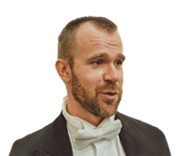
Andreas Doncic, Ph.D. (1978-2018)
The University of Texas Southwestern Medical Center
| Titles & Positions | |
|
|
| Institutional & Related Links | |
Profile
Biography
Grant Information |
|---|
| Grant ID: RR150058 |
| Grant Mechanism: Recruitment of First-Time, Tenure-Track Faculty Members |
| Recruited From: Stanford University |
| Date Awarded: May 20, 2015 |
| Grant Amount: $1,900,527 |
Dr. Doncic was recruited in 2015 to the University of Texas Southwestern Medical Center (UTSW) as an Assistant Professor of Cell Biology and a member of the Cecil H and Ida Green Comprehensive Center for Molecular Computational and Systems Biology. Dr. Doncic’s interdisciplinary training included an undergraduate and Masters degree in Molecular Biotechnology Engineering at Uppsala University in Sweden, a PhD in physics and mathematical modeling at the Weizman Institute (Israel) and a Postdoctoral fellowship at Stanford University using single cell microscopy, yeast genetics and mathematically modeling. As an independent investigator, Dr. Doncic’s used these skills to focus on a fundamental question in life science: How do cells make decisions? This question is especially pertinent to cancer signaling, where malfunctions in complex networks governed by unknown principles interact in time and space to promoteun controlled proliferation. Despite its importance, this question has been hard to approach using conventional techniques.
At UTSW, Dr. Doncic worked on developing a quantitative microscopy system able to simultaneously visualize six colors of labeled cellular components over long periods of time in yeast as they encounter starvation conditions and ‘choose’ between meiosis or quiescence. Then with mathematical models adapted from recently declassified algorithms designed by pioneering computer scientist Alan Turing, Dr. Doncic could predict which inputs were necessary for a cell to go down the path of forming spores or of becoming quiescent.
Following the unexpected death of Dr. Doncic, Dr. Sandra Schmid assumed the role of PI to allow the trainees to complete their work and transition to the next stages of their careers.
